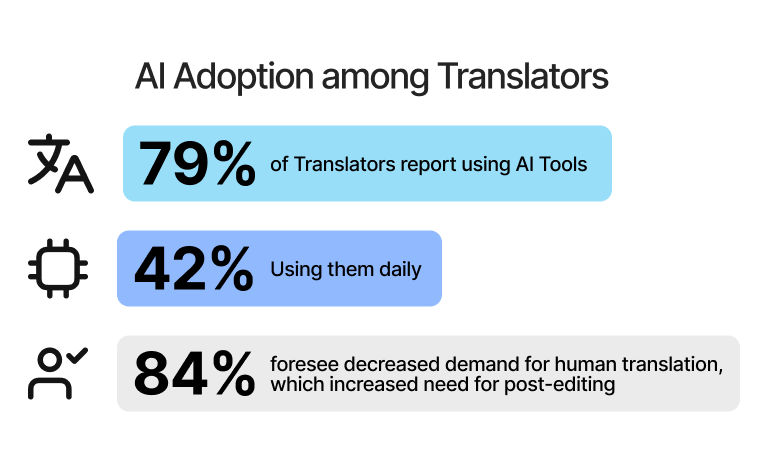
You’ve probably heard that before.
But here’s what many translators are finding instead: AI is making their jobs better.
Far from replacing human linguists, AI is helping them boost productivity, expand their skillsets, and step into more strategic roles. And now there’s data to prove it.
As tools like ChatGPT and machine translation engines get better, many language professionals are discovering new ways to work smarter. They’re learning to embrace AI and treat it as a partner, rather than a threat.
A growing number of linguists are reporting real benefits. Recent findings from Acolad group’s AI Translators Survey 2025 confirm this trend:

While some language professionals remain cautious about how AI affects rates and job security, those who adapt are now:
Ethical training programs like Humans in the Loop are helping linguists gain skills in AI data annotation, validation, and prompt testing. These programs also equip conflict-affected communities with job-ready skills, building inclusive talent pipelines for the AI sector.
As AI becomes part of every stage in the localization workflow, this type of training ensures linguists are prepared to take on new, high-impact roles.

While this shift is clear in the language industry, the underlying message applies everywhere. If you're in marketing, customer service, research, or content creation, AI skills are becoming essential.
You don’t have to become a coder. You just need to learn how to collaborate with these tools effectively. That might mean writing better prompts, using AI to speed up routine tasks, or overseeing AI-generated content with a human eye.
The future of work is not about humans vs. AI. It’s about humans working with AI.
Translators who embrace AI are already seeing the benefits. With the right mindset and training, any professional can do the same.

Visit straker.ai to see how our people-plus-technology approach is redefining quality and speed in translation.